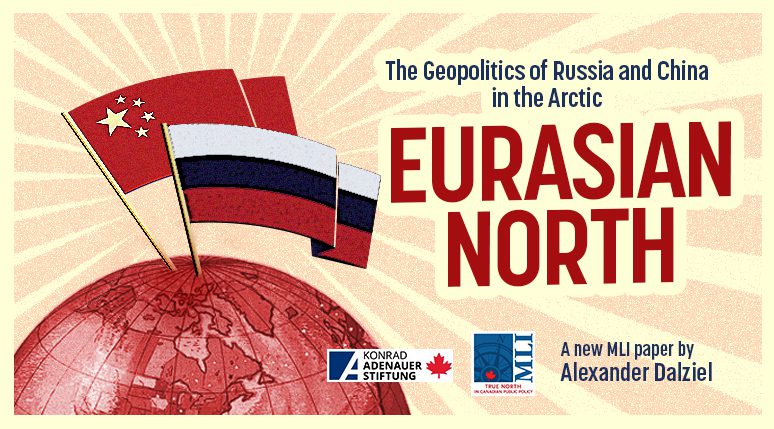By Alexander Dalziel
June 13, 2024
Executive Summary
What should be our expectations of the China-Russia relationship in the Arctic? Media tends to tout the “no-limits partnership” announced by President Xi Jinping and President Vladimir Putin in 2022 and the vision of an exuberant strategic relationship trending towards an anti-American alliance. Meanwhile, much of the specialist community is occupied with talking down this narrative, pointing to the many inhibitors to the full flowering of the relationship. These studies voice well-founded perspectives, and analysts of geopolitics will have little problem accepting that China and Russia have different interests and goals – and that these diverge profoundly at their deepest roots and in their ultimate aims.
But this should not hide that the overall China-Russia co-operation is trending upwards and that this co-operation will likely include an expanding Arctic component over the next decade. Many of their interests in the Arctic currently align and reinforce one another. The Arctic is core to Russia’s rebalancing of its foreign politics and trade towards China and Asia, both for the maritime route it provides and the natural resources it contains, and core to Russian identity and influence. For China, Russia’s Arctic is about diversification and global prominence, a place where it can find more of the minerals and energy it needs for a resilient economy, develop transit routes to lower dependence on other maritime choke points and where it can express the politics of a “polar power” when its options to do so in the North American and Nordic Arctics have dried up. Their co-operation mutually reinforces both countries in their rivalry with the US; and as long as both see the US, Europe, and Canada as adversaries, the Arctic will be a place where Russia and China will negotiate an expanding relationship.
The thresholds to reverse the upward trajectory are high. To upset a mutual dynamic in the Arctic, China will need to vigorously and forthrightly contest Russia’s narrative of national sovereignty over the Northern Sea Route (NSR) and special status as a circumpolar state. Similarly, to reject a growing Chinese commercial, investment, and (bounded) state presence in the region, Moscow will have to begin to perceive China as such a threat in the Arctic that it supersedes the current perception of the United States and Europe as fundamental threats to Russia’s most central foreign goals in Ukraine and Belarus. These appear extremely unlikely in the next ten years.
The current situation provides ample room for China and Russia to avoid the worst outcomes and pursue very many pragmatic ones. Applying a geopolitical lens resolves some of the questions that in other circumstances might plague the China-Russia relationship. As a geopolitical bloc, shaped by their elites’ perceptions of national interest and benefitting from political and geographical similarities and complementary comparative advantages, China and Russia do not need a maximally aligned relationship or one characterized by deep mutual trust. Deficits in these areas will prevent a full alignment, but it will not prevent advancing their highest-priority strategic needs. In pragmatic terms, they are likely to find many points where their respective Arctic politics converge.
This paper will contend that those convergences are found in implications of competition and conflict with Canada, the US, and their allies. The intersections are strongest in the Northern Sea Route, where calculations in a still ice-strewn waterway show a greater readiness to accept risk. While China has less need to buy Russian natural resources than Russia has reasons to sell them, the attractions of a massive proximate Eurasian resource base resilient to geopolitical and security shocks will be conducive to Russian opening of development offers and Chinese follow-through on a greater number of investments in Russia’s north.
In short, China-Russia collaboration will be a growing component of Arctic geopolitics and will almost certainly make their relationship stronger over the next decade. For policy-makers in other northern circumpolar countries and beyond, this will demand attention and calibrated response. The Arctic countries of North America and Europe, their Indigenous peoples, and allies like Germany will need to strive for integrated postures to ensure their Arctics are at a collective advantage in this competition. As a consequence, the imperative of transatlantic security in the Arctic will not just be a matter of defence but of extending a robust North America-European economic cooperation.
Read the full paper here:







